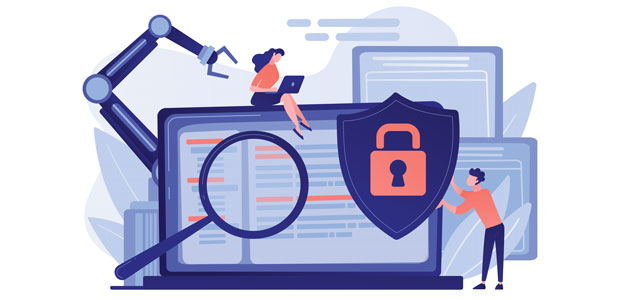
Protect Your Startup by Prioritising Cybersecurity
When you're starting a new business, there are many things to think about. You have to create a product that people want, market it effectively, and establish partnerships with other companies. But one thing that's often overlooked is the importance of cybersecurity.
Unless your startup is positioned in the cybersecurity space, it can be easy not to prioritise it effectively. This article will discuss why it's so important for startups to make cybersecurity a priority from day one and how to do it.
Implement a Strong Password Policy
The first step in protecting your startup is implementing a strong password policy. This means requiring employees to use complex passwords that are changed regularly. These passwords should be stored in a password manager and never written down. Implementing strong two-factor authentication is also crucial for all sensitive accounts.
Effective password management is vital for your customers as well. Passwords should never be stored in plain text, and all passwords should include a minimum level of complexity. To make sure your customers are using strong passwords, you can require them to reset their password every few months and disallow the use of common passwords like 'password' or '123456'.
Install Malware Blockers and Anti-Virus Programs on Company Devices
Another critical step in securing your startup is installing malware blockers and anti-virus programs on all devices. This includes employee PCs, laptops, tablets, and smartphones. Ensure that these programs are kept up to date at all times and run regularly scheduled scans.
Various types of malware can infect your devices, so it's important to have a variety of different blockers and scanners installed. Some common types of malware include viruses, spyware, ransomware, and Trojans.
In addition to installing malware blockers and anti-virus programs, you should also make sure that your employees are educated on safe online practices. This includes:
- Not opening attachments or clicking links in emails from unknown senders.
- Avoiding unsecured Wi-Fi networks.
- Never providing personal information like their Social Security number or credit card number over the phone or online.
Educate Your Employees About Cybersecurity Threats
Cybersecurity threats are constantly evolving, so educating your employees about the most common ones is essential. This should be done regularly and can include reviewing new types of malware that have been discovered and discussing how employees can protect themselves from them. You should also review any recent changes in company policy concerning cybersecurity practices.
In addition to educating your employees about cybersecurity threats, you can provide additional training for those who handle sensitive customer information regularly or work remotely from home offices where data security may not be as strong. For example, many organisations are implementing a clean desk policy, which requires employees to lock their computers and put away any hard copies of sensitive documents when they leave the office or their personal workspaces at night. This significantly reduces the risk of data theft or accidental exposure.
The cybersecurity landscape is constantly changing. What works today to protect your startup might not work tomorrow, so it's important to stay up-to-date on the latest cyber threats and how you can protect yourself from them.
Limit Access to Sensitive Data
Another way to protect your startup from cybercriminals is by limiting access to sensitive data. This means restricting access to specific files and folders only to those who need it and password-protecting them. You can also create separate user accounts for employees to have limited access to company data.
By limiting access to sensitive data, you're making it more difficult for cybercriminals to steal your information. And if someone does manage to gain unauthorised access, you'll be able to identify them and take appropriate action quickly.
Often, companies will adopt a 'zero trust' security model as their first course of action when securing their business. Zero trust means that no user is to be trusted unless they have been authenticated and proven their identity. This includes employees, partners, contractors, vendors, and customers.
A Zero Trust security model helps prevent cyberattacks because it reduces the attack surface area by limiting access points into your network or application(s). It also makes it easier to identify suspicious activity on a particular account since only authorised users should have access in theory. As a result, Zero Trust Security Models are becoming more popular as businesses realise the benefits of having one implemented within their organisation's infrastructure—especially with remote workers being commonplace.
Backup Your Data Regularly
Another way to protect your startup from cybercriminals is by backing up your data regularly. This means making copies of your essential files and storing them in a safe place where unauthorised individuals can't access them.
Backing up your data is essential because it helps ensure that you won't lose any vital information if your device is infected with malware or stolen. It also allows you to restore your data if it's ever lost or corrupted. Data backups can also assist digital forensics investigators in the event of a cyberattack, giving companies a better chance at recovering from them.
There are many different ways to backup your data, so you should choose the one that best meets your needs. Some common methods include using an online backup service, backing up to a USB drive, and using cloud-based or on-premise storage options.
In Summary
Making cybersecurity a priority is essential for protecting your startup from cybercriminals. By educating employees about common threats, limiting access to sensitive data, and backing up important files regularly, you can help keep your company's information safe and avoid leaving your company vulnerable.

